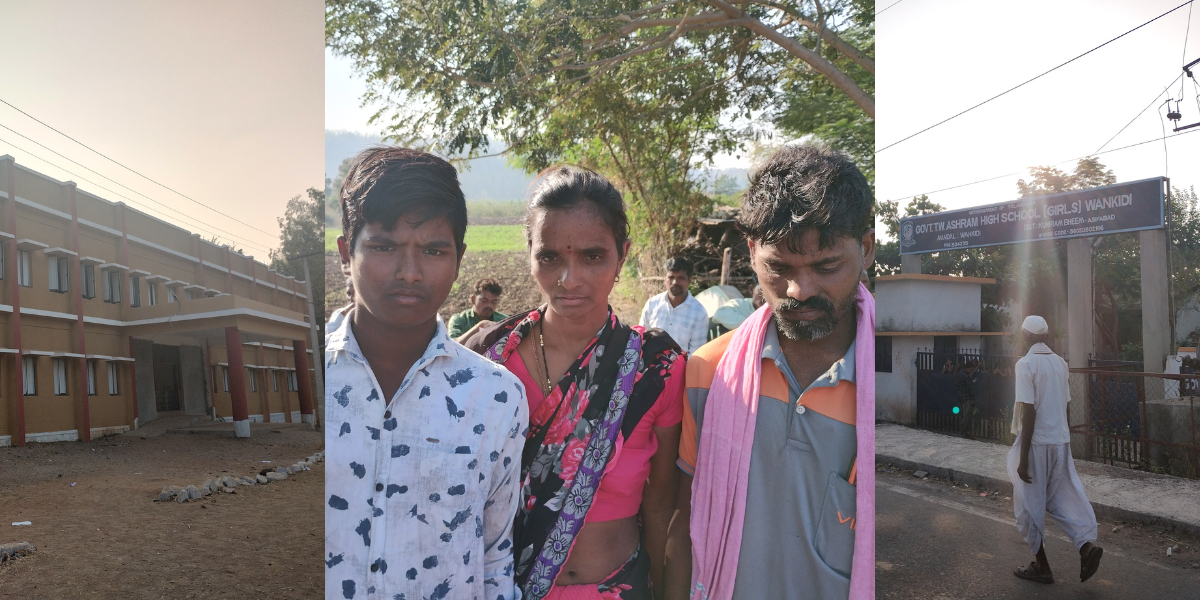The NHRC demanded a report within four weeks after it was apprised about approximately 48 student deaths and 886 incidents of food poisoning reported across Gurukul schools in Telangana.
Published Aug 05, 2025 | 9:00 AM ⚊ Updated Aug 05, 2025 | 9:00 AM

Telangana's Gurukuls are caught amidst a string of illnesses and deaths of students
Synopsis: Telangana’s government-run residential schools marked a significant increase in student illnesses following systemic neglect, with thousands of students suffering from a range of ailments directly linked to unsanitary environments, substandard food, and a pervasive lack of basic facilities. The National Human Rights Commission expressed grave concern over the situation, demanding a report within four weeks.
Telangana’s government-run residential schools, known as Gurukuls, are grappling with a deepening crisis marked by a significant increase in student illnesses.
Recent reports paint a distressing picture of systemic neglect, with thousands of students suffering from a range of ailments directly linked to unsanitary environments, substandard food, and a pervasive lack of basic facilities.
However, this issue is not new in Telangana, with a similar wave occurring in 2024. Meanwhile, on 29 July, the National Human Rights Commission (NHRC) expressed grave concern over the situation, demanding a report within four weeks.
One of the most poignant illustrations of this crisis is the fate of 16-year-old Shailaja, who ultimately succumbed to food poisoning after an extended period of illness.
Shailaja was a student at a Tribal Welfare Residential School in Wankidi Mandal, Kumaram Bheem Asifabad district, and was among 64 students hospitalised due to food poisoning in October last year.
Her aunt recalled her dedication to studies, stating, “She loved studying, she loved it a lot. Even after complaining to us about the food, she chose to stay there”.
However, Shailaja’s health deteriorated, leading to severe kidney and lung complications, and she tragically passed away on 25 November 2024. In the wake of her death, villagers in Dhabha attempted to stage a protest. Still, security personnel reportedly intervened, detaining eight villagers even before Shailaja’s body arrived, thereby preventing any demonstration.
This incident led to a significant drop in student enrolment at the Wankidi Gurukul, with over 100 students reportedly leaving, reducing the count from 570 to around 450 by late November.
However, about a year later, following many assurances from the state machinery has changed. The surge in illnesses seems to suggest otherwise.
The NHRC demanded a report within four weeks after it was apprised about approximately 48 student deaths and 886 incidents of food poisoning reported across Gurukul schools in Telangana.
The Commission, which held a two-day ‘Open hearing and Camp Sitting’ in Telangana on 28 July, reviewed 109 cases of human rights violations in the state. It underscored the critical need for preventive and systemic measures to uphold human rights.
The fundamental issues plaguing these institutions often revolve around basic amenities. Students at the Mahatma Jyotirao Phule Gurukul (Boys) school in Alampur embarked on a 32-kilometre protest march towards the district collector’s office, driven by persistent concerns over poor drinking water, inadequate washrooms, and unhygienic food.
They alleged that the campus water plant contained high levels of fluoride, rendering it unsafe, and that despite years of appeals for a safe water supply, officials had been unresponsive.
The washrooms were described as being in a terrible state, forcing students to resort to using nearby agricultural fields. Furthermore, students complained of being served substandard food, frequently discovering small stones and even worms in their rice.
Around 56 Class 10 students had walked nearly seven kilometres of their planned journey when police intercepted them, stopping their march and transporting them back to the school. Following the police intervention, an Additional Collector visited the school and pledged prompt action to address the students’ concerns.
The school principal acknowledged that the facility operated from a rented building and confirmed that while the water plant had been repaired, construction of proper washrooms by the owner was still pending, though assured to be built soon.
Food quality problems are widespread. Beyond worms and stones, students have reported finding bugs in their meals and receiving insufficient quantities for breakfast.
In Bhadrachalam’s Tribal Welfare Gurukul Girls’ College, both the principal and warden were suspended after students explicitly found worms in the khichdi served. Authorities identified old rice stock as the cause and pledged corrective measures.
There have even been alarming reports of students discovering wires in the rice and pins in Sambhar in their meals. Meanwhile, the Department of School Education increased the diet charges for residential school students by 40 percent in October, an attempt to improve food quality.
To reassure students and parents, various Cabinet Ministers of the state government have visited these schools, pledging their commitment to improving conditions. However, officials from some schools indicate to South First that insufficient funding remains a predominant issue, coupled with neglect from contractors.
The escalating challenges in Telangana’s Gurukul schools underscore an urgent and profound need for comprehensive systemic reforms in infrastructure, hygiene, and administrative oversight to safeguard the health, safety, and overall well-being of the thousands of students who depend on these institutions.
The mounting number of illnesses and fatalities signals a crisis demanding immediate and sustained intervention from all relevant authorities.
(Edited by Muhammed Fazil.)
